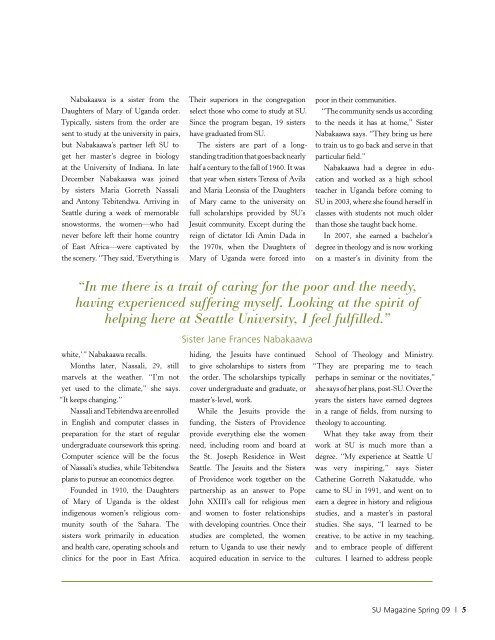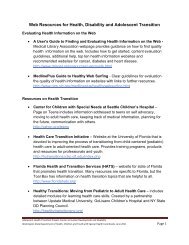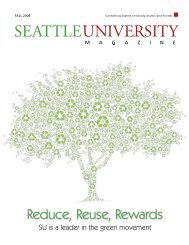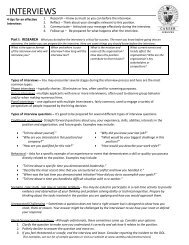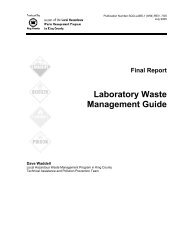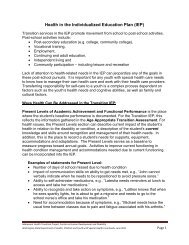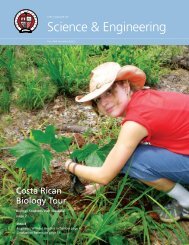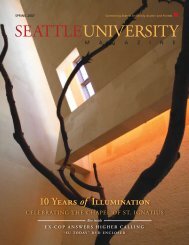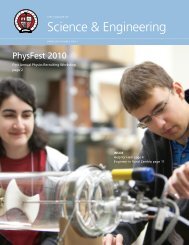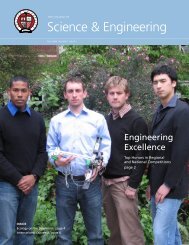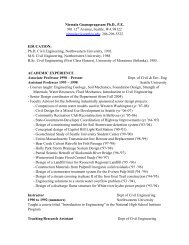Spring 2009 - Seattle University
Spring 2009 - Seattle University
Spring 2009 - Seattle University
You also want an ePaper? Increase the reach of your titles
YUMPU automatically turns print PDFs into web optimized ePapers that Google loves.
Nabakaawa is a sister from the<br />
Daughters of Mary of Uganda order.<br />
Typically, sisters from the order are<br />
sent to study at the university in pairs,<br />
but Nabakaawa’s partner left SU to<br />
get her master’s degree in biology<br />
at the <strong>University</strong> of Indiana. In late<br />
December Nabakaawa was joined<br />
by sisters Maria Gorreth Nassali<br />
and Antony Tebitendwa. Arriving in<br />
<strong>Seattle</strong> during a week of memorable<br />
snowstorms, the women—who had<br />
never before left their home country<br />
of East Africa—were captivated by<br />
the scenery. “They said, ‘Everything is<br />
Their superiors in the congregation<br />
select those who come to study at SU.<br />
Since the program began, 19 sisters<br />
have graduated from SU.<br />
The sisters are part of a longstanding<br />
tradition that goes back nearly<br />
half a century to the fall of 1960. It was<br />
that year when sisters Teresa of Avila<br />
and Maria Leonsia of the Daughters<br />
of Mary came to the university on<br />
full scholarships provided by SU’s<br />
Jesuit community. Except during the<br />
reign of dictator Idi Amin Dada in<br />
the 1970s, when the Daughters of<br />
Mary of Uganda were forced into<br />
poor in their communities.<br />
“The community sends us according<br />
to the needs it has at home,” Sister<br />
Nabakaawa says. “They bring us here<br />
to train us to go back and serve in that<br />
particular field.”<br />
Nabakaawa had a degree in education<br />
and worked as a high school<br />
teacher in Uganda before coming to<br />
SU in 2003, where she found herself in<br />
classes with students not much older<br />
than those she taught back home.<br />
In 2007, she earned a bachelor’s<br />
degree in theology and is now working<br />
on a master’s in divinity from the<br />
“In me there is a trait of caring for the poor and the needy,<br />
having experienced suffering myself. Looking at the spirit of<br />
helping here at <strong>Seattle</strong> <strong>University</strong>, I feel fulfilled.”<br />
Sister Jane Frances Nabakaawa<br />
white,’” Nabakaawa recalls.<br />
Months later, Nassali, 29, still<br />
marvels at the weather. “I’m not<br />
yet used to the climate,” she says.<br />
“It keeps changing.”<br />
Nassali and Tebitendwa are enrolled<br />
in English and computer classes in<br />
preparation for the start of regular<br />
undergraduate coursework this spring.<br />
Computer science will be the focus<br />
of Nassali’s studies, while Tebitendwa<br />
plans to pursue an economics degree.<br />
Founded in 1910, the Daughters<br />
of Mary of Uganda is the oldest<br />
indigenous women’s religious community<br />
south of the Sahara. The<br />
sisters work primarily in education<br />
and health care, operating schools and<br />
clinics for the poor in East Africa.<br />
hiding, the Jesuits have continued<br />
to give scholarships to sisters from<br />
the order. The scholarships typically<br />
cover undergraduate and graduate, or<br />
master’s-level, work.<br />
While the Jesuits provide the<br />
funding, the Sisters of Providence<br />
provide everything else the women<br />
need, including room and board at<br />
the St. Joseph Residence in West<br />
<strong>Seattle</strong>. The Jesuits and the Sisters<br />
of Providence work together on the<br />
partnership as an answer to Pope<br />
John XXIII’s call for religious men<br />
and women to foster relationships<br />
with developing countries. Once their<br />
studies are completed, the women<br />
return to Uganda to use their newly<br />
acquired education in service to the<br />
School of Theology and Ministry.<br />
“They are preparing me to teach<br />
perhaps in seminar or the novitiates,”<br />
she says of her plans, post-SU. Over the<br />
years the sisters have earned degrees<br />
in a range of fields, from nursing to<br />
theology to accounting.<br />
What they take away from their<br />
work at SU is much more than a<br />
degree. “My experience at <strong>Seattle</strong> U<br />
was very inspiring,” says Sister<br />
Catherine Gorreth Nakatudde, who<br />
came to SU in 1991, and went on to<br />
earn a degree in history and religious<br />
studies, and a master’s in pastoral<br />
studies. She says, “I learned to be<br />
creative, to be active in my teaching,<br />
and to embrace people of different<br />
cultures. I learned to address people<br />
SU Magazine <strong>Spring</strong> 09 | 5


